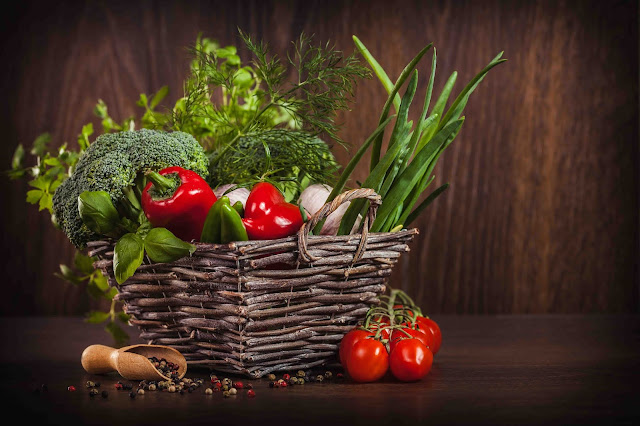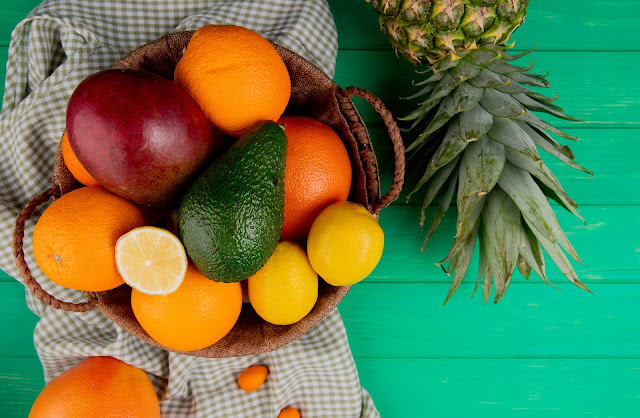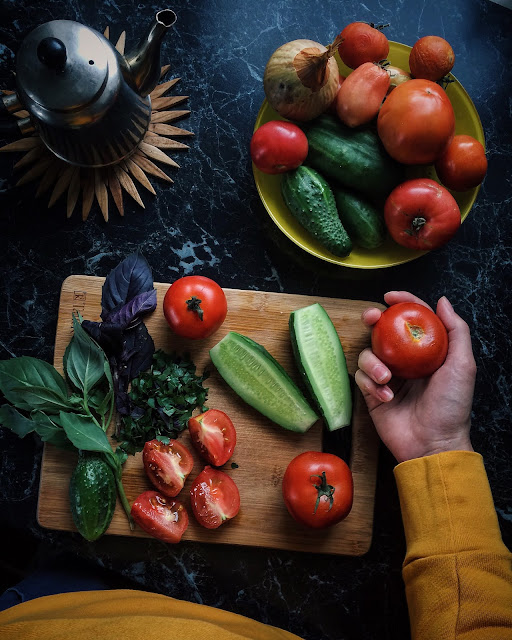What Happens To Your Body When You Start Eating More Vegetables!
Eating more vegetables gives countless important nutrients that fight disease and ageing, it gives less space in your stomach for junk. You don’t have to wait long until you’ll start feeling and seeing the benefits of fresh organic vegetables. Start eating more vegetables today and you’ll feel the difference tomorrow and continue to notice boosts to your health in the coming week, months and years. The vegetable is a broad term that refers to the edible parts of plants which are usually their leaves, roots, fruits or seeds. Vegetables are a staple food across the world and are a fundamental part of modern agriculture. Since they are low in calories but high in nutrients, most health experts recommend that you consume vegetables daily. There is a scientific consensus that a balanced, rotating diet of different varieties of vegetables is one of the best ways to source nutrients from your food starting at your age. Eating plenty of fresh vegetables may be one of the simplest ways to improve your health and well-being. All vegetables contain healthful vitamins, minerals and dietary fibre. Specific vegetables help to get more health advantages to certain people, depending on their diets, overall health and nutritional needs.
Do You Know How Nutrients Included in Vegetables?
Vegetables are low in calories and carbs and rich in fibre, vitamins, minerals and disease-fighting phytochemicals. They are also an excellent source of antioxidants which help neutralize harmful free radicals. This helps to prevent oxidative damage and inflammation, both of which can contribute to heart disease and diabetes. The actual nutritional content of fresh vegetables depends on the specific vegetables. Your best bet is to eat a rainbow colour of veggies to obtain an array of nutrients.
What Are The Health Benefits of Vegetables?
Do you know the health benefits of vegetables? The health benefits are endless by increasing the intake of vegetables. Here we show the most important benefits:Decrease Inflammation
Chronic inflammation is linked to obesity and insulin resistance, cardiovascular disease metabolic syndrome etc. High chronic inflammation is caused by increasing the habit of the western diet that means people are preferring to eat food that is high in fat, sugar and processed foods and low in fibre. But a traditional Mediterranean dietary pattern gives an anti-inflammatory effect on the body because it contains an abundance of fruits, vegetables, legumes, grains, fatty fish and healthy fats.
Improves Health of the Gut Microbiome
The microbiome plays a huge role in health. It regulates overall health, immune system, metabolism, energy, body weight, mood, food choices, nervous system, heart health, risk of diabetes, metabolic syndrome, osteoporosis, mental health, allergies, etc. A healthy gut is one that contains a good balance of bacteria as well as diversity. Food high in fibre, especially certain types of fibre and resistant starches called prebiotics, play a major role in keeping gut bacteria in balance. Many vegetables are excellent sources of prebiotics. Eating healthy foods can alter your gut bacteria for the better in a matter of a few days!
Aids in Weight Management
Vegetables help in the weight loss journey by some mechanisms:
Low in calories and carbs
High in fibre and water so they keep you feeling full longer
Decrease Risk of Type 2 Diabetes
New studies suggest that the more plant foods you eat, the lower your risk of type 2 diabetes. Magnesium-rich veggies aid in decreasing the risk of type 2 diabetes.
Dresses Risk of Heart Disease and Stroke
Vegetables contain a wide variety of plant compounds that play an important role in heart health, including decreased cholesterol, improved blood vessel functioning lowered blood pressure and decreased inflammation.
Lower Blood Pressure
Hypertension or high blood pressure refers to the pressure of blood against your artery wall. Over time, high blood pressure can cause blood vessel damage that leads to heart disease, kidney disease and stroke. Eating vegetables has been proven to help lower blood pressure.
Decrease Insulin Resistance
Many research shows that eating a diet rich in plant compounds is linked to higher insulin sensitivity. Colourful fruits and vegetables are rich in plant compounds that have antioxidants properties. Several studies have found a link between high soluble fibre intake and increased insulin sensitivity.
Improves Bone Health
Vegetables play an important role in bone health. Not only can they be a good source of calcium, but they also provide other nutrients important for bone health including magnesium, potassium, Vitamin K and Vitamin C.
Supports Eye Health
Lutein and zeaxanthin are powerful antioxidants that defend your body against unstable molecules called free radicals.
Improves Brain Health
Many studies show that vegetables help to improve your brain health.
We all have probably heard the quote “food is medicine” by Hippocrates. Well then, we would say vegetables are one of the most potent natural “medicines” you can consume. Here we show the 10 most healthful vegetables and we suggest ways to enjoy them as part of your balanced diet!
Spinach
How to Eat Spinach: People enjoy spinach raw in salads, sandwiches and smoothies. Cooked spinach also has significant health benefits and is a great addition to pasta dishes and soups.
Kale
How to Eat Kale: People use baby kale in pasta dishes, salads and sandwiches. A person may also enjoy kale chips or juice.
Broccoli
Broccoli is an incredibly healthful vegetable that belongs to the same family as cabbage, kale and cauliflower. These are all cruciferous vegetables.
How to Eat Broccoli: Broccoli is very versatile. People can roast it, steam it, fry it, blend it into soups, or enjoy it warm in salads.
Peas
How to Eat Peas: It might be handy to keep a bag of peas in the freeze and gradually use them to boost the nutritional profile of pasta dishes, risottos and curries. A person might also enjoy a refreshing pea and mint soup.
Sweet Potato
How to Eat Sweet Potatoes: For a simple meal, bake a sweet potato in its skin and serve it with a soup of protein such as fish or toffee.
Eating vegetables every day is important for health. They provide essential vitamins, minerals and other nutrients such as antioxidants and fibre. Research consistently shows that people who eat at least 5 servings of vegetables a day have the lowest risk of many diseases, including cancer and heart disease. Here we Gulf Fruits is one of the best fruits and vegetables suppliers in Dubai that we provide online fresh vegetables in Dubai, for more information, visit our website. Get fresh vegetables online at an affordable price in Dubai!











Comments
Post a Comment